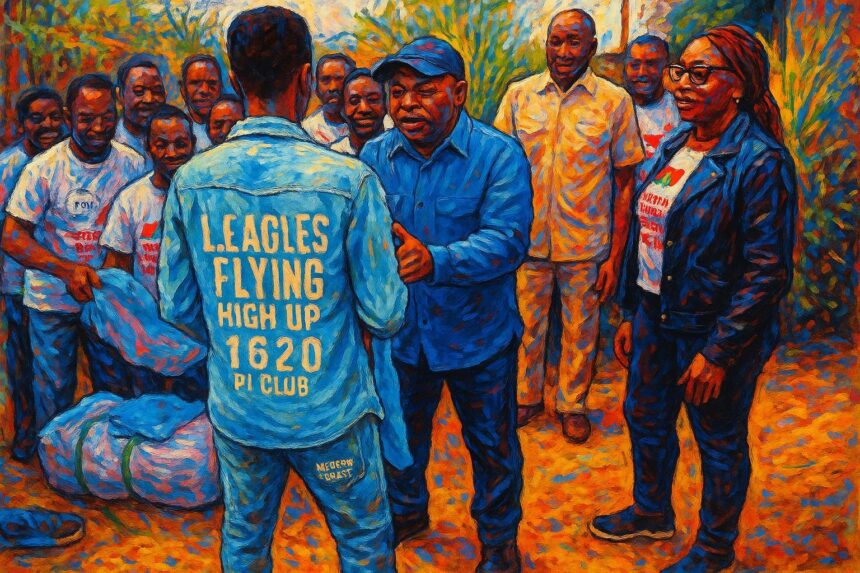Bed net distribution targets malaria’s stubborn foothold
In the lush valleys and plateaux that link Brazzaville to the Atlantic coast, the Department of Pool has long battled a stubborn prevalence of malaria. On 2 August, Prefect Jules Mounkala Tchoumou formally opened a new chapter in that struggle by launching a large-scale distribution of long-lasting insecticide-treated nets (LLINs) in Kinkala. The deployment, supported by the Ministry of Health and Population, aligns with the National Malaria Strategic Plan 2023-2027 and echoes the World Health Organization’s recommendation that at least 80 percent of at-risk households sleep beneath an LLIN (WHO 2022).
With malaria accounting for roughly one third of outpatient consultations in Congo-Brazzaville, the human and macro-economic stakes remain considerable. The World Bank pegs productivity losses at nearly two percent of GDP annually (World Bank data, 2023). Officials therefore frame the campaign less as a routine act of welfare and more as a strategic investment in human capital.
Digital traceability and public trust
The novelty of the Pool operation lies less in the nets themselves than in the technology that follows them. Each household receives an allocation calibrated to family size, and the receipt is instantly logged through a QR-code scan on a field worker’s smartphone. Cyr Edgard Mbadi Moumpouya, departmental logistician for the campaign, argues that real-time digital traceability will “tighten accountability loops, limit leakages and reassure donors that last-mile delivery is verifiable.”
Public reaction has so far matched the optimism. In Kinkala’s Mfilou quarter, resident Clarisse Ngouabi spoke of a “new sense of ownership” created by seeing her household data securely stored rather than scribbled on a clipboard. That intangible trust may prove decisive in ensuring that nets are neither resold on informal markets nor diverted for fishing, a practice health officials have occasionally recorded along the Congo River.
Synergy with national hygiene mobilisation
Beyond disease vectors, Congolese authorities have sought to address the environmental conditions that allow mosquitoes to flourish. Immediately after inaugurating the LLIN campaign, local leaders joined citizens in a day-long sanitation operation at Kinkala General Hospital. The clean-up was inspired by the Prime Minister’s circular establishing the first Saturday of every month as a nation-wide “Villes, villages et habitations propres” observance.
Mayor Edwige Ndebeka Biyengui explained that coupling the bed-net rollout with visible sanitation work “sends a signal that malaria is not only a medical issue but a civic one.” International observers view the approach as consistent with integrated vector-management strategies endorsed by the African Union’s Continental Malaria Framework (AU communiqué, 2023).
Regional rollout and calibrated partnerships
Pool is no outlier. Since a 28 June pilot in Djoué-Léfini, the programme has expanded to the Plateaux, Cuvette-Centrale, Cuvette-Ouest and Likouala departments. Minister of Health and Population Jean Rosaire Ibara states that more than 3.8 million nets are earmarked for distribution before the onset of the next rainy season. Financing blends domestic budget lines with support from the Global Fund and UNICEF, a formula designed to shield the campaign from fluctuations in any single funding stream.
Diplomatic missions in Brazzaville have greeted the initiative as a signal of Congo-Brazzaville’s willingness to honour its commitments under the Abuja Declaration and the Sustainable Development Goals. A European Union health attaché described the digital component as “aligning with our own transparency benchmarks” while noting that data privacy compliance would be monitored.
Sustaining momentum beyond distribution
Experience in neighbouring countries warns that net ownership does not automatically translate into consistent use. To mitigate that risk, health educators in Pool are conducting door-to-door demonstrations on correct installation, emphasizing recommendations such as airing nets for twenty-four hours before first use and avoiding chlorine-based detergents. Radio Kinkala simultaneously broadcasts messages in Lari and Lingala to reach remote villages along the Loutété River.
Long-term success will depend on entrenching behavioural change. The Ministry aims to integrate yearly net-use surveys into its Demographic and Health Survey module, thereby enabling policy adjustments rooted in empirical feedback. Congolese paediatrician Dr Rosalie Nganga contends that “embedding evaluation into routine data collection ensures the campaign remains a living instrument rather than a one-off gesture.”
Early indicators are encouraging. Health posts in Kinkala and Kindamba reported a 12 percent drop in paediatric malaria consultations during the first fortnight following distribution compared to the same period last year, though epidemiologists caution that sustained monitoring across an entire transmission season is required before drawing firm conclusions.





















